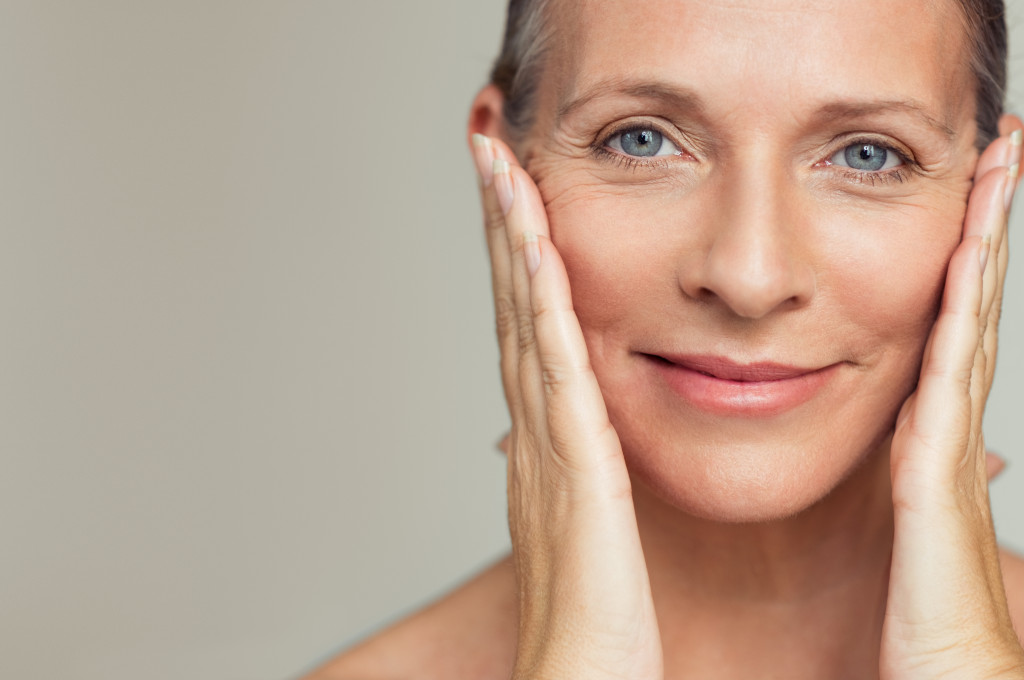Shelter is one of our basic survival needs. Our homes take a beating from the elements so that we don’t have to endure them. If you live somewhere with a lot of rain, having a regular roof-cleaning service is a no-brainer. Maintenance is required to keep the structures that protect us in good condition.
Similarly, our bodies have vital organs protected by layers of resilient tissues. Muscle and fat do a great job of absorbing shocks and impacts. But the outermost layer, our skin, is what protects us from the constant rigors of the outside world.
The skin is the largest organ in the body. It helps regulate our thermal balance, absorbs solar radiation, and acts as a barrier to superficial injuries and pathogens that could cause disease.
Many people make efforts to take care of their skin. Yet too often, those measures are based on appearances alone. The skin doesn’t just protect us, it also provides a window into our overall health, and this needs to be a prompt to take better care starting from within.
Clues to deep-lying conditions
Blemishes, irritations, and other unexpected changes in your skin are certainly undesirable. The right application of a topical cream, for instance, could dispel them quickly. But sometimes, they persist or appear in other parts of the skin.
Dermatologists can interpret these skin signals as clues to potential issues that may be going on underneath. Like medical detectives, they can recognize certain skin conditions as symptoms of a greater concern.
Persistent rashes that don’t respond to treatment, and may be accompanied by fever or pain, can be a symptom of infection. Alternatively, such rashes may develop as part of an allergic reaction to the medication you’re taking.
A persistent purple rash on the lower legs is associated with hepatitis C. If the rash is velvety, appearing on the nape or arms, it could indicate a high risk for type 2 diabetes or even cancer of the stomach or liver.
Generally, new growths on the skin are something you need to have checked by a doctor. They may be related to skin cancer, an internal disease, or a genetic syndrome. The same is also true of discoloration or darkening, changes in the nails, or the skin’s hardness or dryness.
A mirror of your nutrition
Not every emerging skin flaw has to set off your alarm bells. But even if these blemishes aren’t linked to a severe health condition, they can also reveal deficiencies in your overall nutrition.
The link between skin condition and individual nutrition levels has long been studied, dating back to scurvy treatment with vitamin C. In fact, many micronutrients were identified by scientists based on their impact on skin health.
Slow wound healing, frequent outbreaks of acne, and inflammation of the skin indicate a vitamin A deficiency. Inflammatory skin conditions such as psoriasis or atopic dermatitis have been associated with a lack of vitamin D.

Certain minerals have also been studied for their effect on the skin’s function. Zinc, for instance, facilitates wound healing. Even moderate zinc deficiency can lead to lesions in areas where the skin is frequently exposed to friction or pressure.
Essential fatty acids, such as omega-6 and omega-3, are linked to the skin’s barrier function. A diet lacking these nutrients leads to skin that’s more susceptible to photoaging, including greater wrinkle formation and dryness.
Inside-out care
If your skin problems indicate a more urgent issue, there’s no substitute for professional advice and treatment. But even if there’s no underlying condition to be worried about, poor skin health must also alert you to the need for better nutrition.
Research shows that good nutrition can help reduce or alleviate many skin problems. These range from frequent acne and lesions to inflammation, psoriasis, and signs of aging. If you can see to it that your diet covers the key micronutrients, you’ll be able to take good care of your skin from the inside out.
This doesn’t diminish the importance or effectiveness of topical treatments and other external practices or applications to improve your skin health. The mere act of pampering can also do your well-being a world of good.
But in the process of eating well to maintain your skin, you’ll be reminded to stick to a balanced diet. Not a fad or something that eliminates a major food group, but one that covers everything the body needs in the right amounts. Get that right, and you can enjoy rejuvenated skin while taking care of the inside of your body in the process.



















